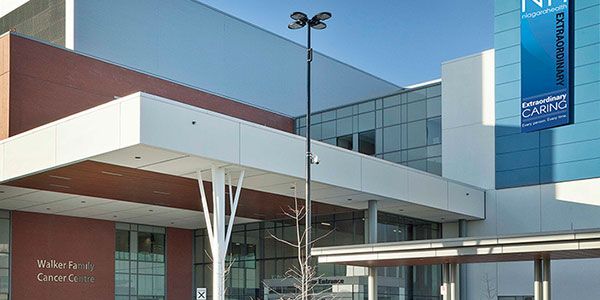In this edition:
- Government of Ontario announces new details of $1.2 billion Building Faster Fund
- Canada cuts international student positions by 35%
- Niagara Health receives highest-possible level of accreditation
- First containers roll through new Hamilton rail terminal
- Niagara-on-the-Lake Lord Mayor calls for focus on shared services, not amalgamation
- Focus on Human Resources
Government of Ontario announces new details of $1.2 billion Building Faster Fund
The Ontario government announced the latest steps in its plan to invest in rural communities and municipalities at the annual Rural Ontario Municipal Association (ROMA) conference. Premier Ford announced new details regarding the expansion of Ontario’s $1.2 billion Building Faster Fund (BFF) to small, rural and northern municipalities that have not been assigned housing targets by the province. Ten per cent – or $120 million – of the BFF will be reserved for these municipalities to help them build housing-enabling infrastructure.

Canada cuts international student positions by 35%
The Honourable Marc Miller, Minister of Immigration, Refugees and Citizenship announced today that the Government of Canada will set an intake cap on international student permit applications for two years. For 2024, the cap is expected to result in approximately 360,000 approved study permits, a decrease of 35% from 2023. Individual provincial and territorial caps have been established, weighted by population, which will result in much more significant decreases in provinces where the international student population has seen the most “unsustainable” growth, the Government of Canada said in a statement.
Study permit renewals will not be impacted. Those pursuing master’s and doctoral degrees, and elementary and secondary education are not included in the cap.
“This should have happened some time ago,” Mike Moffatt, an assistant professor at the Ivey Business School at Western University, said shortly before Miller’s announcement.
“The provinces should’ve acted first … But it’s good to see the federal government bring back some rationality back to the number of international students.”

Niagara Health receives highest-possible level of accreditation
Niagara Health has received the highest-possible level of accreditation for the third consecutive time.
Accreditation Canada says Niagara Health has met all of its required organizational practices in its commitment to ensure safe, quality care for patients and their families.
Officials spent a week assessing Niagara Health sites in November.






